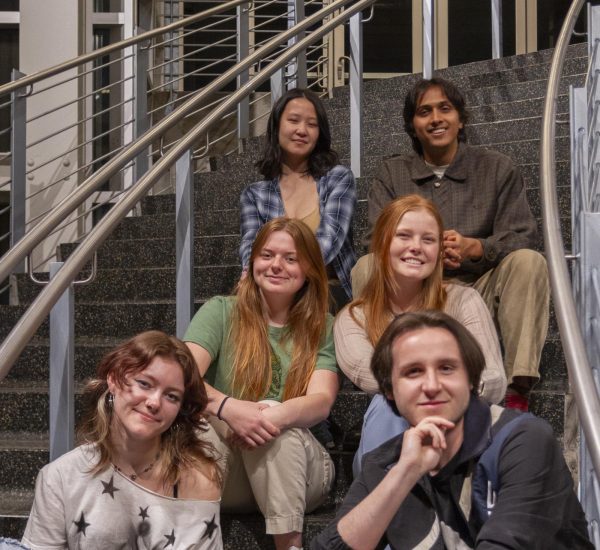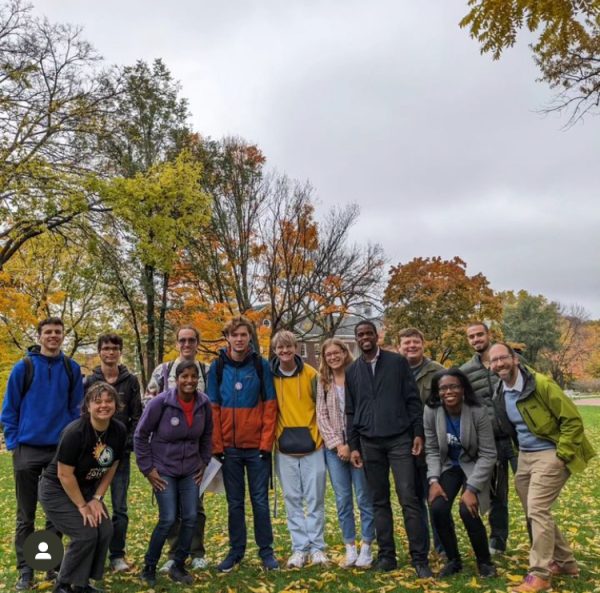By Rachel Harlos
As April is winding down, I’d like to reflect on this National Month for Safer Sex. Macalester celebrates it own Safer Sex Week, which often goes by unnoticed, during the week of Valentine’s Day. It is sponsored by Winton Health Services to promote safe sex issues on campus. As important as we here at Winton think safe sex is, some of the feedback from students suggests the opposite.
Attendance at the Valentine week’s events was low, and when surveyed as to why they did not attend (granted this was not a statistically significant survey) students responded that they didn’t think safe sex is a relevant issue on campus. If this consensus is widely shared that safe sex is a non-issue at Macalester, we are juxtaposed between our perceptions and our realities regarding sexual activity among students.
Beginning in 1998, and continuing every odd year, the American College Health Association administers a survey on healthy behaviors. The result is the National College Health Assessment, 58 questions that ask 1,000 randomly selected students about everything from alcohol, tobacco and other drug use, to impediments to academic performance. The survey also includes questions on sexual activity. The response rate for 2005 was 48 percent at Macalester, so we can trust that the numbers reported are statistically relevant.
The responses concerning safe sex use at Macalester are interesting and perhaps alarming, considering the apathy towards this topic. When asked if they used a condom the last time they had oral sex, 4 percent responded yes. Responses were considerably higher for vaginal sex (56 percent) and anal (33 percent). One might interpret that these low numbers (I consider these numbers low since they do not or barely exceed a majority) represent a dominance of monogamous relationships at Macalester, whose partners have mutually decided to stop using condoms. However, Macalester’s rates vary little with those of all colleges surveyed (54,111 surveyed in all colleges). The rates for oral sex are the same (4 percent), and a bit lower for vaginal (53 percent) and anal (28 percent). Therefore, we aren’t any different from any other campus where students are in a variety of relationships in which we’d expect a more frequent use of protection.
Further questions that ask about student’s perceptions bring to light the juxtaposition that safe sex is not an issue for Macalester students. When asked about vaginal sex, 53 percent of Macalester students mostly or always used a condom in the last 30 days, while 85 percent of Macalester students think that their peers use condoms for vaginal sex. For anal sex, 38 percent of Macalester students mostly or always used a condom in last 30 days, but Macalester students think that 69 percent of their peers do. And, for oral sex, 4 percent of Macalester students mostly or always used a condom in last 30 days, while 10 percent think that their peers do. Further, keep in mind that these statistics don’t even touch on other forms of safer sex, such as dental dams, female condoms, latex gloves, and washing toys correctly. Obviously, there is a large discrepancy between what we think we do and what we actually do.
We can’t assume that because we are at a place like Macalester, where students assume responsibility for the products we buy or the transportation we use, that we will also take responsibility for our sexual health. Further, it is a dangerous assumption to make that we will educate (or already are educated) ourselves on our sexual health. We come from diverse backgrounds where a comprehensive sex education curriculum may not have been part of our upbringing. Continuing to provide spaces where sex education is accessible is still pertinent to Macalester. If college teaches us anything, it is that we are life-long learners—this includes sex.
However, providing the information is not enough. As students and members of a community, our individual responsibility is part of a collective wellbeing. As we’ve seen, Macalester isn’t any different from other college campuses, small or large, public or private when it comes to sexual activity. Actually, our small size puts us at a higher risk. Assuming that the majority of students are sexually active with other Macalester students, sexually transmitted infections (STIs) can spread faster and easier in this smaller population. We have a personal responsibility to continue educating ourselves. This doesn’t mean we should see more students at Safe Sex Week next year (although that would be nice). Rather, we should recognize that safe sex and sex education does still relate to us and will throughout our lives.
As Macalester students, we often hear, or spout ourselves to be, the virtues of self-education and social consciousness. What a better place to begin, then with our own sexual health? Our empowerment begins within and taking the responsibility to know and care for ourselves.
Rachael Harlos ’06 is the coordinator for Students Education Xs and Ys (SEXY) and can be reached at [email protected].











Julia Lawrence • Sep 11, 2019 at 8:19 pm
Itís very simple to find out any matter on net as compared to textbooks, as I fount this article at this web page.
Alan Bailey • Sep 10, 2019 at 2:08 pm
Hey there! Someone in my Myspace group shared this website with us so I came to take a look. I’m definitely enjoying the information. I’m bookmarking and will be tweeting this to my followers! Exceptional blog and excellent design and style.
Charles Gray • Sep 7, 2019 at 3:06 pm
This is a topic which is near to my heart… Many thanks! Where are your contact details though?